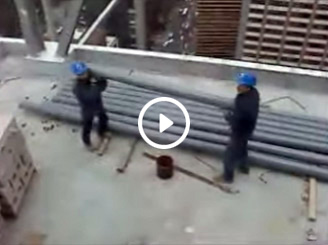STEAMFITTER-PIPEFITTER
In the long run, it pays to become a steamfitter-pipefitter, trained through Union apprenticeship.
Job Description
The steamfitter-pipefitter tradesperson completes planning, layout, assembly, and installation of pipe and piping systems for deployment in facilities that include oil refineries, pulp and paper mills, nuclear power plants, food and beverage manufacturing plants, and the automotive industry. Their work includes specialty piping systems that are composed of stainless steel, chrome-moly, nickel, monel, and inconel, that require special joining techniques. The systems that these tradespeople work on are the highest pressure and temperature applications anywhere, and they require a thorough knowledge of scientific principles to complete this work safely.
Training
Training to become a steamfitter-pipefitter is available through a Union apprenticeship program offered by the United Association of Journeypersons and Apprentices of the Plumbing and Pipefitting Industry of the United States and Canada.
The application process to become a part of the Union includes, in most jurisdictions in Canada, that you must be at least 16 years of age and have a minimum Grade 12 education. Steamfitter-pipefitter is a complex, analytical trade, and taking courses in mathematics and science, as well as having good oral and writing skills, are necessary in preparing yourself for a career as a ‘Pipefitter’. An apprentice is someone who learns a trade by working under the guidance of a qualified Journeyperson in the trade, so that they can ‘learn while they earn’. The skills that are developed under this arrangement have been a proven model for the trades since the 1400’s when the apprenticeship model began. Learning skills from a license tradesperson is still the best way to become a master at your craft. The apprentice also has to attend training at a registered apprenticeship school and learn the theoretical skills required for the position. You get paid by the hour while working on the job site.
Payback
Apprenticeship is both an ancient tradition and a highly effective modern training method, one which is still proving to be the best system for trades training. It is a highly rewarding career path for an individual who is motivated to learn the piping trade, and become an active member of a proud and noble trade union. The rewards of Union apprenticeship training are the good wages and benefits you receive as a skilled craftsperson. You’ll be working under the protection of a Union contract with insurance, pension, and health and welfare benefits. In the long run, it pays to become a welder, trained through Union apprenticeship!

